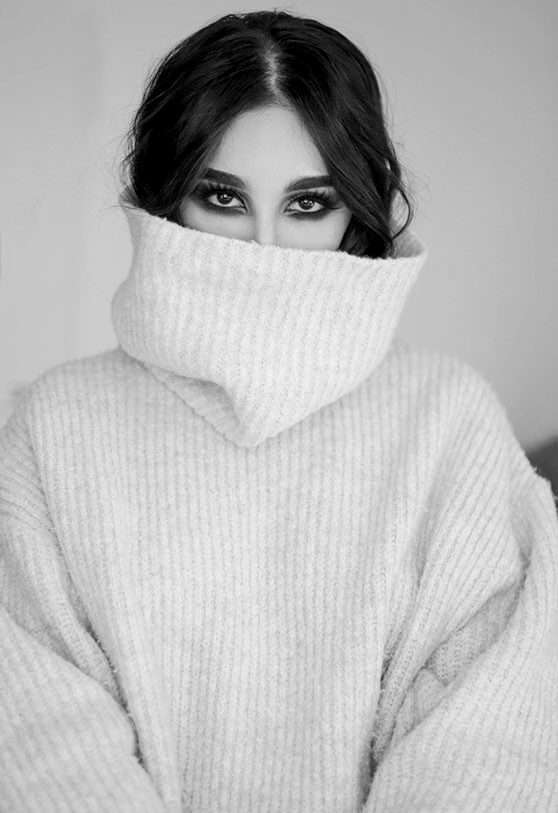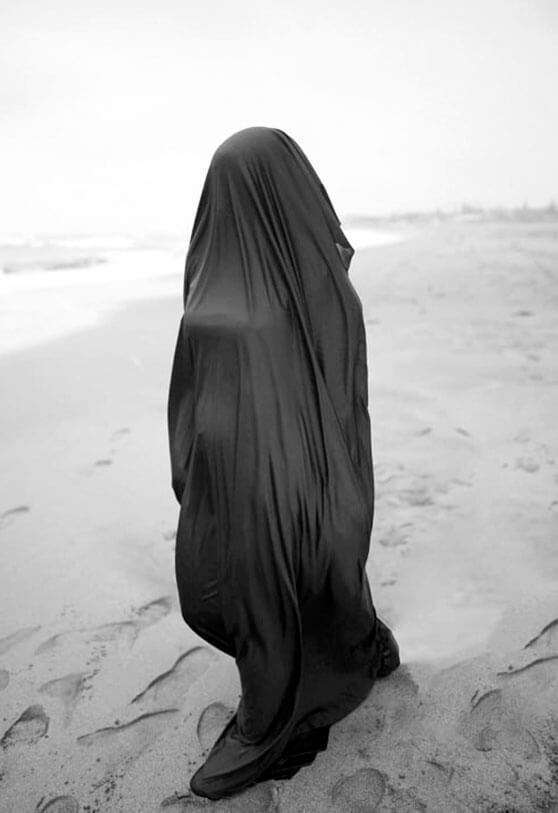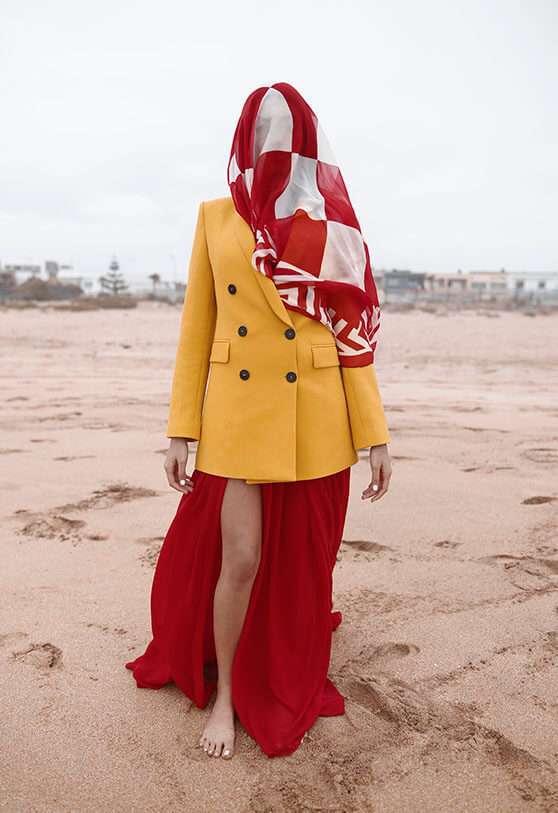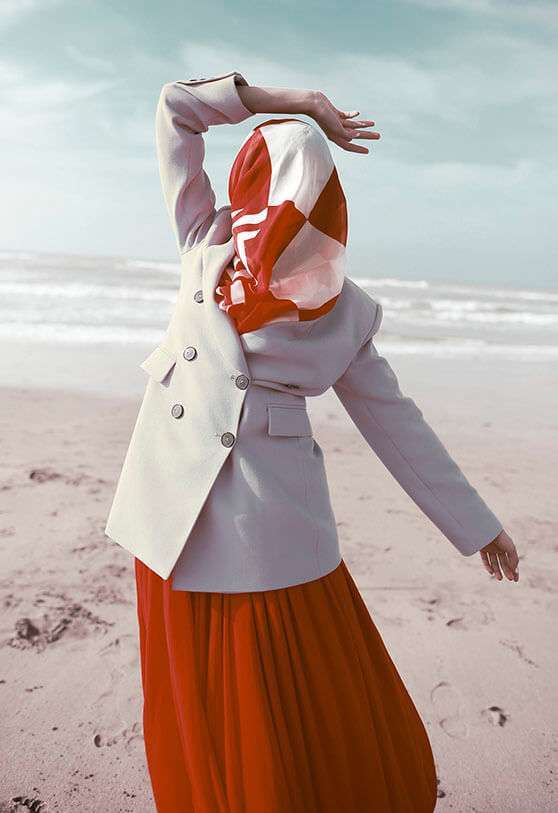The condemnation of Islamic feminism

@noor.alamarty
Images by ISMAEL SOUIDI Instagram: @whos_selected
Born and educated in a Muslim society, which recognizes itself as Arab, despite the distinction of my origins (Amazigh too), I must say that from a very early age I manifested symptoms of feminism. I discovered this in a library with display cabinets one quiet summer afternoon, when I was 11 years old. That book was called “Princesses of Islam”, and it was a breath of fresh air for what I did not yet know it would be a before and after in my life.
The book by Maria Dolores Masana, which my aunts kept in an endless collection of books on the subject of women in Islam, hid the stories of women who had had to live and reinvent themselves in that hostile Islamic patriarchy in so many ways, but who nevertheless believed in the renewal of their societies, always removed from the establishment of religion. Nawal Saadawi was the protagonist, the victim of clitoral ablation, (I must admit how traumatic it was to read the description of the process), along with many other experiences that all women coming from Islamic contexts have had to face, or at least most of us. I soon read all of her work up to date.

But, most importantly, I read all the Islamic feminists that my aunts and my mother collected, the latter being brilliant but cautious Muslim intellectuals who felt and still feel in tune with the former.
However, from all those women who spoke to me about Islam and feminism, I never avoided a definite conclusion. So, am I a feminist or a Muslim? Can I be both? Do I have to be an Islamic feminist if I am a Muslim?
I finished reading all of Fatema Mernissi's work, I admired her of course, she had studied political science, she had been censored, she was the height of the rebellion in terms of reference as a Moroccan woman.
However, I felt a painful rage at such justification of patriarchy, at an Islamic feminism incapable of reinventing the status quo of Muslim women or women in Islam, simply a feminism perplexed by its own religious identity, incapable of evolving naturally on the margins of belief or faith. It was then that I understood the politics of Islam, the life regulated by the religious system that forces its fellow citizens not to dissociate themselves from that politicization, in order to maintain it as a control device that is not optional and that corresponds by birth. In the Muslim world, as women, we have not been able to choose to be Muslims, and although the degree of obligation is one or the other depending on the family, the religious system is no longer only family but community, and often state and legislative.
Therefore, yes, we have the responsibility to say it, the religious establishment in which “Islamic Law” belongs, is misogynist, is macho, is patriarchal, places us under the power and guardianship of not only a man, father, brother or husband, but also under that of society. We are the object of criticism, mockery, and social dismay. Everything we do with our lives becomes political, something upon which to implement a law, if it doesn't already exist. It makes us invisible, and does the same with our problems, it makes us second-class citizens even though we are half of society, it denies us the right to complain, to say no.
Rebutting Islamic feminism does not necessarily mean entering into debates about whether the Prophet is “progressive” or not (in its historical context of course, because it is not very progressive to inherit one third as much as our male brothers, or not to be able to have three husbands unlike men), as so many Islamic feminists have peddled it to us over the years, hypocritically taking refuge in the fact that we do not want to criticise the sacred text (the Koran) or the prophet because we respect religion and faith too much (as feminist women in pursuit of secularism) in the society to which we belong and which are professed by people we love or even by us.
To refute this, it is enough to go to the basic status quo from which it starts.

Therefore, yes, we have the responsibility to say it, the religious establishment in which “Islamic Law” belongs, is misogynist, is macho, is patriarchal, places us under the power and guardianship of not only a man, father, brother or husband, but also under that of society. We are the object of criticism, mockery, and social dismay. Everything we do with our lives becomes political, something upon which to implement a law, if it doesn't already exist. It makes us invisible, and does the same with our problems, it makes us second-class citizens even though we are half of society, it denies us the right to complain, to say no.
Rebutting Islamic feminism does not necessarily mean entering into debates about whether the Prophet is “progressive” or not (in its historical context of course, because it is not very progressive to inherit one third as much as our male brothers, or not to be able to have three husbands unlike men), as so many Islamic feminists have peddled it to us over the years, hypocritically taking refuge in the fact that we do not want to criticise the sacred text (the Koran) or the prophet because we respect religion and faith too much (as feminist women in pursuit of secularism) in the society to which we belong and which are professed by people we love or even by us.
To refute this, it is enough to go to the basic status quo from which it starts.

This is the same reason why Islamic feminism considers us, born or practicing Muslim women, to be inherent in our religious condition. Islamic feminism does not dissociate us from our faith (existing or not), it looks at us through the eye of the needle of what we “are supposed to believe”, it analyses us by the contingency that it is an identity and facet that will always be before our self, because the politicised religious system forces us to expose ourselves and to constantly manifest ourselves as “valid or not” in it.
Islamic feminism does not see us as women with full rights who can profess the Muslim faith or not, and in different ways, but it sees us as irremediable Muslims who face their lives with the sole prism that this adjective implies, so it peddles a liberating veil, a burka that should not be overly questioned, and a long etcetera of false tools so that we stumble upon ourselves. Never before has a veil been liberating, empowering, feminist. It was what we all know it to be, a way of protecting women, first from themselves, and then from others.
This does not mean that we condemn veiled women, quite the contrary: we need each other, but in honesty, from the reality that assumes that we have all accepted, by faith, by culture or for other reasons; elements that do not have a latent feminist character and that nevertheless do not prevent us from being feminists or at least from developing our identities as feminists, whatever faith we profess, but from ourselves as individuals with full consciousness, rights and decision-making power.

Accepting how many women for whatever reason can defend a symbol of their own free will, are suffering in return for the legal or social obligation to wear it.
All of us who are capable of analysing how much is not symbolism, but the politicised and systematic use that is made of our bodies, can transform society, so that all women have representation, so that there are valid references for the many different types of women, and that we will never be enough in this long struggle to vindicate what we believe in, but also who we are, what we feel or what we think.
We owe it to all those who have left our surroundings and societies and are not capable of transgressing the limits, because the price to be paid is very high, to all the girls of today who tomorrow will want to be us or perhaps not, but who need us to watch over them every day so that they can decide, not whether to be Islamic feminists or not, not whether to wear a veil or not, but who they are, where they are going and why.

We owe it to all women in our countries of origin, who live under the yoke of legal systems imbued with an “Islamic Law”, unjust, misogynist and oppressive towards us, and who will therefore face social rejection, prison sentences or a life condemned to suffering. We owe it to all those who can never read us because they were not even given access to literacy to do things right, honestly, knowing that we are privileged in many ways.
We owe it to each other to grow, to discuss, to learn from each other, in sorority, from the sense of knowing that we are part of a whole that we can only build together, because if our struggle is not sustained on both sides, it will never prosper.

We must not be accomplices of what has been oppressing us for centuries. We owe it to ourselves not to be further divided by an Islamic feminism or a racialized feminism, distancing ourselves from women who, however European by birth or white they may be, have pioneering ancestors in freedom or are themselves, and whether or not our struggles are similar, we all have a responsibility to learn from each other.
I am left with a quote from my favourite writer, Joumana Haddad : “I am what I was told not to think, not to say, not to dream, not to dare. I am what I was told not to be”.

